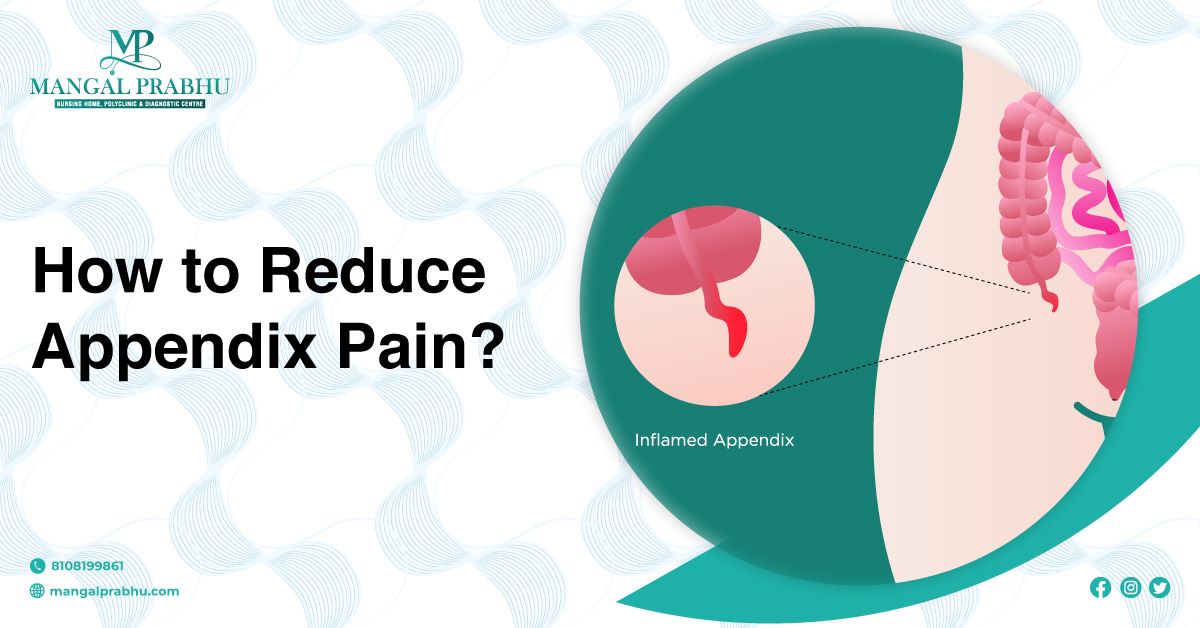
The appendix is a small pouch attached to your intestine at the lower right side of your abdomen. The appendix can get blocked, causing the bacteria inside it to multiply rapidly, filling it with pus. As a result, it can get inflamed, requiring surgery.
Appendicitis can be life-threatening if the appendix bursts, spreading the bacteria to the abdominal cavity. You must get immediate appendix removal treatment in Navi Mumbai to prevent complications. Read on to learn more about appendicitis, when you need an appendectomy treatment, and how to relieve the appendix pain.
Examining the Symptoms of Appendix Pain
Appendicitis pain is extremely severe. It starts with mild cramps in your upper and lower abdomen, especially around the belly button. The pain is often described as a sharp and sudden pinch in the abdomen.
It gets worse when you move. The pain is so severe that you won’t be able to fall or stay asleep at night. The worst part is appendicitis requires almost immediate medical attention, i.e. within 24-48 hours. The pain keeps getting worse every hour. Here are some other symptoms of appendicitis.
- Loss of appetite
- Nausea and vomiting
- Fever
- Indigestion
- Diarrhea
If you feel constipated, do not use an enema, laxatives, or any medication or tool to pass the bowel movement. This can burst your appendix.
Also Read: Understanding The Different Types Of Surgeries: A Guide For Patients
Ways to Help Reduce Appendix Pain
Unfortunately, you cannot get rid of the appendicitis pain, as it tends to get worse over time. Painkillers might help for a while, but that’s only until their effect lasts. It’s best to see a general surgeon in Navi Mumbai and get an appendectomy—a surgery to remove your appendix.
Since the appendix is not an essential organ and one can easily live without it, having it surgically removed is the only treatment option for appendicitis. It’s usually performed as an emergency treatment.
Here’s what you should do to avoid complications after the surgery:
1. Limit Strenuous Activities:
Do not practice any strenuous activity that puts unnecessary pressure on your abdomen or the site of the operation. If the surgery was performed laparoscopically, you can start moving 3-4 days after the operation, however, open surgery involves a longer recovery period.
2. Use Support When Moving:
Place a soft pillow on your abdomen and hold it gently when you cough, laugh, or move.
3. Contact Your Doctor:
If you still feel sharp or mild pain, contact your doctor immediately to seek medical help.
4. Rest:
Take leave from work or your classes for one week. You need rest post-surgery to speed up the healing. Take short walks initially. You can return to work when you feel alright. It’s best to talk to your doctor about when you can resume your work. Avoid strenuous activities for at least a month, so that your body can heal faster.
Conclusion
Appendicitis is an emergency medical condition that requires immediate treatment. If you notice the above-mentioned symptoms, contact a doctor immediately. Usually, people don’t have much time to prepare for appendectomy, as the surgery is an emergency treatment that’s performed during diagnosis.
